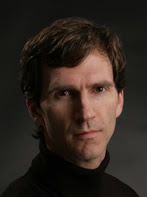 Here's a SuperCollider-oriented blog that contains some good stuff:
Here's a SuperCollider-oriented blog that contains some good stuff:Synaesthesia and the Affect of Programming in SuperCollider
Forming a relationship with [SuperCollider] code in order to realise the body as an immersive environment.
Electroacoustic and computer music: software, musicians and events
 Here's a SuperCollider-oriented blog that contains some good stuff:
Here's a SuperCollider-oriented blog that contains some good stuff: | Pianoteq 2.3 I already can make really nice piano sounds with the Logic 8 EXS24-based sampler presets (Bosendorfer, Steinway, Yamaha) but this is a physically-modeled piano, not a sample-derived player, so it has a low footprint (at the expense of CPU cycles) and presumably, greater sonic flexibility. I'm hoping to get some unusual sounds that depart from what you might expect a piano to sound like. |
 | Automat1 1.01 I don't use subtractive synthesis all that much, but this one is freeware so I usually pick up a couple of things like this and see if I can make any good sounds quickly. |
 | Automaton This is by Audio Damage, and I'm a big fan of their plug-ins. This might evolve into some interesting things if feed the right source input sounds. |
 | Nodal This might be overly complicated, but it looks like an interesting user interface which may or may not generate interesting music. |

